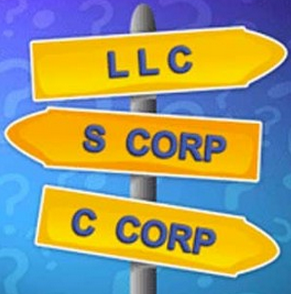LLC Vs. Corporation?
 As a new gym owner, looming legal and business matters can flummox you—among them the decision whether to file as an LLC or corporation. Infiniti Elite Athletics owner Cari Ann Bulzone says filing as an S-corp was one of the first things she did when she took over the program from its previous owner in 2012—and it was a learning experience every step of the way. “It’s not something to take lightly; gym owners should definitely do their homework,” says Bulzone, who used LegalZoom as a resource and to facilitate filing.
As a new gym owner, looming legal and business matters can flummox you—among them the decision whether to file as an LLC or corporation. Infiniti Elite Athletics owner Cari Ann Bulzone says filing as an S-corp was one of the first things she did when she took over the program from its previous owner in 2012—and it was a learning experience every step of the way. “It’s not something to take lightly; gym owners should definitely do their homework,” says Bulzone, who used LegalZoom as a resource and to facilitate filing.
Whether you go the DIY route like Bulzone or consult a lawyer, here are a few things to consider during the decision-making process:
Liability: Trixie Bennett, executive director of finances/services at Copperas Cove, TX-based GymKix, says that when the gym was set up, protection from liability was her top priority. She chose to go the LLC route because it’s cheap and quick: “LLCs are like the “low-fat” versions of corporations. It gave us the same legal protection as a traditional corporation but with half the ‘fat’ [aka red tape],” says Bennett.
However, both models offer some protection from liability, according to Washington, D.C.-based attorney Thomas J. Simeone. “Both a corporation and LLC limit the liability of the owner for claims against and debts of the company. That is vital,” says Simeone. “But setting up and maintaining a corporation can be more expensive and inconvenient than doing the same for an LLC. For example, corporations may require annual meetings, directors, by-laws, etc. So, for newer and smaller businesses, LLC’s are popular.”
Taxes: From the tax perspective, many gym owners might be better off filing as an LLC. “Unlike corporations, LLCs don’t suffer from double-taxation, in which the corporate entity is taxed and then its shareholders’ dividends are taxed as well,” says Bennett. “Corporations have to pay tax on their earnings before passing the profits through to shareholders to be taxed.”
For example, at GymKix (which is an LLC), any earnings or losses “pass through” to the co-owners and are included on their individual tax returns and taxed at their individual income tax rates. “If you’re a single owner, this might not be too good at tax time as all the profits would be added to your individual income tax return,” cautions Bennett.
Healthcare: When David Skaw, owner of Clackamas, OR-based Thunder Elite All Stars Inc. chose to go the corporation route, healthcare was a prime consideration: “For us, the ability to write off 100 percent of health benefits for officers is important. You can’t do that as an LLC.”
Future Plans: Bulzone of Infinite Elite had the big picture in mind when she decided to file as an S-corp. “I like the idea of being able to bring in other partners; that way, I can offer long-term coaches a little bit more in the future should they want it,” says Bulzone. “I have such great employees who work so hard, and increasing their responsibility will only get you so far. Eventually, I can look at them and say, ‘Would you like to own a part of Infiniti Elite?’” She adds that having an S-corp also allows her to leave her own options open: “Should I decide to leave the program, I wanted the option to pass my shares on to someone else so that the corporation could continue thrive without me if that was ever in the cards.”
Multiple Locations: Skaw of Thunder Elite says if you’re a single-location gym, LLC can be a very viable option. However, “if you have multiple partners and multiple locations, a corporation makes more sense,” he advises. And gyms can have it both ways—even if a gym starts out as an LLC, it’s possible to make the switch to corporation as your business grows and multiplies. “Most states have conversion statutes where you can convert from one to the other,” says New York-based attorney Trippe Fried.
However, switching may be time-consuming and/or expensive. “Though you can switch back and forth, there are fees, and in some states like New York, it can be complex,” says Fried. “You [also] have to transfer the corporate documents into LLC documents or vice versa, so there is some paperwork involved.” In some states, gym owners must go as far as creating a separate entity and then merging the LLC into the corporation (or vice versa). “The result is the same, but it’s a little more expensive from a filing perspective and considerably more paperwork,” points out Fried.
–Dinsa Sachan
Visit our blog for a rundown of the different types of corporations that might work well for gym owners! You can also find handy forms and resources in our “Biz Docs” section.








